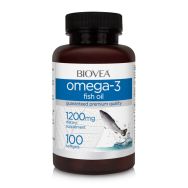Hormone health for women: Tips for a trouble-free menopause

Do you suffer from menopausal night sweats, forgetfulness, achy joints and insomnia? Maybe you’re wondering why your symptoms seem to be far worse compared to other women? This article will help you to understand how hormone changes result in menopause symptoms, and a few practical tips to help manage your symptoms.
Perimenopause vs Menopause
The average age of the onset of the menopause is 51, although this varies widely.
The term menopause refers to the time your periods completely stop. For as long as ten years beforehand, you may experience symptoms such as hot flushes, mood swings, headaches and anxiety, your periods may become irregular and premenstrual symptoms worsen. This is known as perimenopause.
Post-menopause on the other hand refers to your life without periods.
Changing Hormones
All through your reproductive life progesterone and oestrogen, the hormones in charge of reproduction, change daily to prepare your body for pregnancy. These two hormones have wide-ranging roles aside from your fertility.
During perimenopause, these hormones often fluctuate widely, but following menopause, they drop and stabilise at a low level. So, most of the symptoms of the perimenopause are caused by changing hormone levels, while post-menopausal symptoms like dry skin, low libido and vaginal dryness are usually a result of low hormones.
You still need oestrogen and progesterone after the menopause, but they’re made by your stress glands and fat cells rather than your ovaries.
Menopause is a natural transition experienced by every woman – it’s not a disease and you shouldn’t have to live with these uncomfortable symptoms.
Trouble-Free Menopause tips
- Improve digestive health
A healthy gut is important not only to absorb the nutrients needed for good hormone balance but the bacteria making your gut their home are crucial for eliminating used hormones once they’ve done their job.
Nurture healthy gut bacteria by eating plenty of fibre-rich, unprocessed plant foods and avoiding sugar. If you have sugar cravings, munch on a handful of fresh nuts or seeds. Sesame, pumpkin and flax seeds are especially beneficial because they contain natural plant oestrogens, helping to balance out fluctuating hormone levels. Other sources of these natural oestrogens include beans, lentils and unprocessed soya like tofu and tempeh.
Nutrients important for hormone health include B Vitamins, rich in leafy greens, eggs and legumes, and essential fats, especially Omega 3. This fat assists hormone production, improving your cells’ sensitivity to hormones, and is found in nuts, seeds and oily fish and a good quality Omega 3 supplement.
Garlic supplements support liver function, with good liver health crucial for healthy hormone balance.
- Stress less
This is at number one because stress has a huge effect on your hormonal wellbeing. Stress hormones are needed for you to respond physiologically to dangerous situations. Your body produces stress hormone at the expense of progesterone – so if you’re stressed out, you won’t be making much precious progesterone once your ovaries hand over the job to your adrenal glands. Progesterone and oestrogen levels are closely linked, with swinging oestrogen levels sparking off hot flushes.
It’s impossible to avoid stress, but manage your response to stress with meditation, yoga and deep breathing exercises – make them a habit, not an occasional luxury. - Sleep better
Menopausal symptoms are enemies of sleep, as you’ll know if you’ve been kept awake by night sweats or anxious thoughts.
If you dream of a good night’s sleep, go to bed at the same time every night and set your alarm for a similar time every morning, even at weekends.
Consider taking a supplement of magnesium at bedtime as this mineral is involved in helping muscles and nerves relax, or try a magnesium-rich Epsom salts bath.
- Exercise more
If you’ve found you tend to put on weight, this could be because unbalanced hormones increase the likelihood you’ll gain weight. As well as helping you manage your weight, exercise can reduce the negative effects of stress on your hormonal health and successfully reduce anxiety. - Less or no alcohol
As menopause approaches, you may notice you don’t tolerate alcohol as well – it can often spark off hot flushes, too. Alcohol affects the function of your liver and stress glands, as well as disrupting your sleep.
Try alternating an alcoholic drink with sparkling water, or dilute wine 50:50 with water for a refreshing spritzer.













